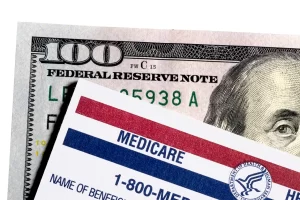Adding dental benefits to Medicare, Comprehensive dental care is the most important extension of benefits for Medicare since the introduction of prescription drugs in 2006, and it’s important that we get it right.
Medicare is our nation’s health insurance program for older adults. The current problem is that Medicare only covers “medically necessary” care.
For the wealthiest retirees who can afford rewards, Medicare Advantage pays for exams, cleanings, and other treatments such as fillings, crowns, and dentures. Advertising integrated into the Medicare program is a myth and an unhappy truth. Myth: The mouth doesn’t matter. Anyone who has had a dental problem knows that the mouth is inextricably linked to overall health and well-being. Unhappy truth: dental care in the United States is a privilege.
In 2019, 30 percent of Medicare beneficiaries had a Medicare Advantage plan (although not all plans have comprehensive dental care); 16 percent were insured through a private employer, and 8 percent had dual enrollment in Medicaid. The latest number is exaggerated, as adult dental care is spotted on Medicaid and most states only provide emergency care. Therefore, 70 percent of older adults lack comprehensive dental care. Why is it important? If you don’t have coverage, you’re missing out on annual checkups that allow dentists to diagnose and treat diseases early and benefit patients with preventive care.
It means relying on ill-equipped emergency rooms for final dental treatment. Research has shown how costly and inefficient this is for taxpayers. It also means relying on free clinics. ADVERTISEMENT On a recent research trip, I met an older man with tooth decay who has been on the waiting list since 2019 to see a dentist. Millions of older adults in the United States are silently and hopelessly suffering the consequences of dental disease, in part because Medicare has ruled out dentistry.
Find Medicare Plans in 3 Easy Steps
We can help get up to $0 monthly premium Medicare plans

How can we do it right? The American Dental Association, which represents its 160,000 member dentists, has ideas for Medicare that are primarily aimed at protecting dentists. Our nation’s Medicaid program, which provides comprehensive benefits to low-income children and optional adult dental services, provides important lessons for Medicare reform. First of all, splitting up is not the same thing. Creating a separate program for low-income Medicare beneficiaries would widen the gap between the havings and the have less, leaving millions of people struggling to find affordable and affordable health care.
Comprehensive dental services must be fully integrated into Medicare Part B, as described in applicable law. All Medicare beneficiaries would be eligible. Sliding scale rewards and copays must be part of a single program to ensure equity. Second, traditional reimbursement systems are cost-effective. Funding for dental Medicaid programs through service fees was not sustainable, as it provided incentives for overtreatment. Some states have turned to managed care to control costs, but this results in rationed care, undertreatment, and dissatisfied beneficiaries. Medicare administrators may consider other strategies.
Oregon Coordinated Care Organizations are a model of how dentistry can be integrated into the health care system to manage costs, maintain quality, and ensure sustainability.
Third, dental care is important, but other factors, including behaviors, are critical to long-term oral health. Two of these behaviors include removing added sugar from food and brushing with fluoride toothpaste. My own research shows that sugary drinks cause tooth decay in children enrolled in Medicaid.
The dental care system does not deal with behaviors. Congress should provide funding to develop programs for Medicare participants that promote optimal oral health behavior and create incentives. Medicare’s evidence-based diabetes prevention program promotes healthy eating and exercise. When combined with comprehensive benefits, behavioral programs can lead to healthier beneficiaries with fewer dental needs, resulting in cost savings.
This is the kind of far-reaching impact we should look for when reshaping the benefits of Medicare. Medicare seniors are entitled to comprehensive dental services, and Congress can achieve this in ways that ensure equity, sustainability, and impact.
Find Medicare Plans in 3 Easy Steps
We can help get up to $0 monthly premium Medicare plans
Read More:





